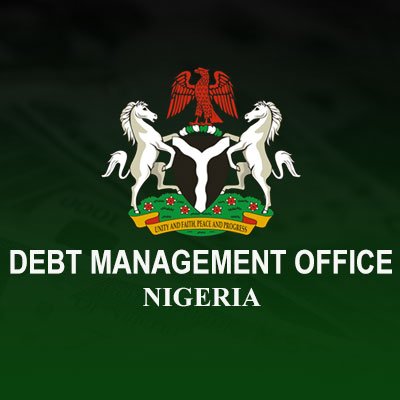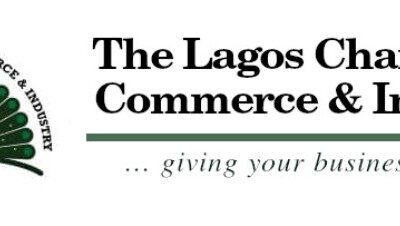Money market
Government must focus on equity financing, divestment, shedding equity holdings in state-owned enterprises — LCCI
By Omolola Dede Adeyanju
The Lagos State Chamber for Commerce and Industries (LCCI) has released its statement on Nigeria’s rising public debt.
“Given the recent data released by the Debt Management Office (DMO), the nation’s public debt increased by N6.69 trillion or 22.7 per cent to N46.25 trillion ($103.11 billion) as at the end of 2022 from N39.56 trillion ($95.77 billion) at end-2021,” the Chamber said.
“The growth reflected on both the domestic and external debt. The external debt stock increased to N18.70 trillion ($41.69 billion) in 2022 from N15.86 trillion ($38.39 billion) while domestic debt stock went up to N27.55 trillion ($61.42 billion) in 2022 from N23.70 trillion ($57.39 billion).
“In contrast, debt service declined to N3.87 trillion in 2022, representing 8.3 per cent decrease from N4.22 trillion spent in 2021.
“According to DMO, the increase in the debt stock was due to new borrowings by the Federal and State Governments to finance their budget deficits, to execute some specific projects, as well as the issuance of promissory notes to settle some Federal Government obligations.
“Between 2013 and end-2022, the Lagos Chamber of Commerce and Industry (LCCI) notes that public debt rose by 360.47 per cent, from N10.04 trillion in 2013.
“As a result, we are deeply worried by this development in the face of insignificant revenue growth, large presence of decaying infrastructure and the unsustainable burden of oil subsidy overhang.
“Although, a decline in debt service appears positive but the ratio of debt service to government revenue at about 90 per cent remains alarming and unsustainable.”
The Director General of the Chamber, Dr Chinyere Almona FCA, remarked, “The Chamber recommends that government must shift focus to equity financing, divestment or shedding of its equity holdings in state-owned enterprises, real estate, and infrastructure to reduce its debt commitments and improving its fiscal situation. Both capital and interest payments on borrowed sums expose the country’s fiscal vulnerabilities.
“Also, the government should, as a matter of urgency, emphasise strategies on revenue growth while blocking leakages.
“Importantly, the government may want to consider the need to deregulate the downstream subsector of the oil industry to block a major drain on revenue.
“Finally and most importantly, following the commendable launching of the restructured Ministry of Finance Incorporated (MOFI) as the arrow head of Nigeria’s efforts to optimise national assets by President Muhammadu Buhari on the 1st of February 2023, the Lagos Chamber of Commerce and Industry wishes to urge that copious references should henceforth be made to the growth in the stock of financial assets that Nigeria owns in corporate equities, real estate and infrastructure spaces and the returns Nigeria is generating on them, each time Government of Nigeria is providing updates on the growth in the stock of the financial liabilities that Nigeria owes and the costs it is incurring on them, to provide local and global observers a balanced picture of our financial evolution.
“This would motivate national asset managers, led by MOFI, to grow our assets and the returns on them as well as motivate our national liability managers, led by DMO, to minimise our liabilities and the costs we incur on them, with equal vigor. Indeed, issuance of joint reports by MOFI and DMO could be most ideal going forward.”
One-sided updates on liabilities with no updates on assets when such updates were adequately available could well be blamed for some of the downgrades of Nigeria’s debt issuance risk profile and outlook.
The rating outcomes would have been more favourable had updates on assets been provided side-by-side with updates about liabilities.
Money market
CBN launches strategy to double remittances, grants AIP to 14 new IMTOs


The Central Bank of Nigeria (CBN) has activated plans to double foreign-currency remittance flows through formal channels by granting 14 new International Money Transfer Operators (IMTOs) Approval-in-Principle (AIP).
Money market
DMO sells N378bn FGN Bond despite higher demand


Nigeria’s Debt Management Office (DMO) sold N378 billion in FGN bonds yesterday despite facing higher than offered demand for the bonds, indicating the government is slowing down on borrowing cost.
Analyst at Afrinvest West Africa, Segun Adams said that at the auction DMO sold 1.52 times its offer.
“The decision to sell 44.2 percent of papers issued to non-competitive bidders suggests DMO’s mindfulness of the growing cost of borrowing on the Federal Government,” he said.
The DMO auctioned N450 billion FGN bonds yesterday across three tranches. It issued a new nine-year bond and reopened a five and seven tenure at N150 billion each.
Preference was given to the new 9-year bond selling N285.12 billion, even though it was oversubscribed to the tune of N551.32 billion at a stop rate of 19.89 percent.
Adams said that it’s a trend we should expect for the near term as DMO attempts to manage its pressure on the fiscal side.
DMO sold N32.67 billion and N62.98 billion barely 40 percent of the initial offer on the 5-year and 7-year offer despite getting over N170 billion on both bids.
Analysts at CardinalStone explained in its most recent monthly fixed income report that at the long end (bond), they expect yield increases to be tamer.
This view is premised on the government’s decision to frontload a substantial part of its 2024 borrowings in the first quarter.
“Specifically, the Q2 ’24 bond auction calendar suggests that the government should raise between N300 billion — N600 billion monthly compared to the 2.5 trillion borrowings in Q1’24,” the report said.
The N2.5 trillion bond auction is the highest amount the government has attempted to raise in local bonds in one month.
The stop rates of the five and seven-year bonds were 19.29 and 19.74 percent respectively, which is marginally less than the stop rate on the one year Treasury bill considered less risky than longer-dated bonds.
The stop rate on the bonds is also well below the March inflation rate of 33.2 percent as price pressures remained prevalent in Nigeria.
The current benchmark interest rate stands at 24.75 percent, a 600 basis point increase from 18.75 at the beginning of the year.
At the previous bond auction a total of N626 billion was sold of the N450 billion put up.
Money market
Naira falls to 1,530/$ on parallel market as dollar shortage intensifies


The naira on Tuesday continued its free fall across the foreign exchange (FX) market, depreciating to a new low of 1,530 per dollar on the parallel market, also known as the black market.
This represents 0.98 percent (N15/$1) depreciation compared to N1,515 quoted on Monday on the black market.
The renewed naira depreciation after the gains in April 2024 was attributed to a shortage of dollars occasioned by the repatriation of funds by foreign portfolio investors (FPIs).
FX trading at the Nigerian Autonomous Foreign Exchange Market (NAFEM) witnessed a depreciation in the value of the local currency by 0.79 per cent as the dollar was quoted at N1,478.11 on Monday, weaker than N1,466.31 quoted on Friday.
Dollars supplied by willing sellers and willing buyers increased significantly by 91.28 percent to $217.64 million on Monday from $113.78 million recorded on Friday.
The intraday high closed at N1,515 per dollar on Monday, weaker than the N1,490 closed on Friday. The intraday low appreciated to N1,301/$1 as against N1,322/$1 on Friday.
The Naira was able to extend its appreciation from mid-March till mid-April, before the recent decline. The naira however closed flat against the dollar in April appreciation only by about 0.04 percent in the official market, according to a report.
A report by Comercio Partners noted that the transition from a managed fixed to a floating exchange rate regime resulted in a depreciation of the naira, with significant volatility leading to a low of N2,000/1$.
This continuous depreciation may have prompted the Central Bank of Nigeria (CBN) to take action to support the exchange rate by increasing the monetary policy rate (MPR).
In February 2023, the CBN, under the administration of Cardoso, implemented the first-rate hike, raising the MPR by 400 basis points to 22.75 percent. This was followed by an additional increase in March, raising the MPR by 200 basis points to 24.75 percent. These hikes in interest rates coincided with a strengthening of the naira, which appreciated to as high as N1,150/$1, the report stated.
The temporary stability occurred due to CBN interventions aimed at curbing speculation on the Naira by banks and other parties, such as the prohibition of Foreign Currency Collaterals for Naira Loans and directives to international money transfer operators (IMTOs) to align their exchange rates with prevailing market rates at the official foreign exchange market.
“The CBN might apply the same strategy of maintaining its hawkish stance to give the exchange rate more strength, particularly since it has seen some commendable results given that the naira currency was one of the best-performing currencies in April,” analysts at Comercio Partners said.
-
Finance4 months ago
Court orders Sen. Victor Umeh to repay N136m bank debt to AMCON
-
capital market2 years ago
Rt.briscoe, FBNH, Others halts negative performance of stock market
-



 Abuja Update3 months ago
Abuja Update3 months agoUNDP, FG partnership needed to achieve inclusion, equity- Minister
-
Abuja Update2 months ago
Banks drive stock market performance with N147bn gain
-



 Health4 weeks ago
Health4 weeks agoCapacity training will reduce migration of health workers- NPHCDA
-



 Business3 weeks ago
Business3 weeks agoTingo Group unveils Tingo Electric, Tingo Cola drink at Lagos launch
-
Submission Guidelines4 months ago
CALL FOR SUBMISSIONS: POETRY COLUMN-NND
-
News4 months ago
Oil thieves sponsoring malicious media campaign against Navy – Spokesman












